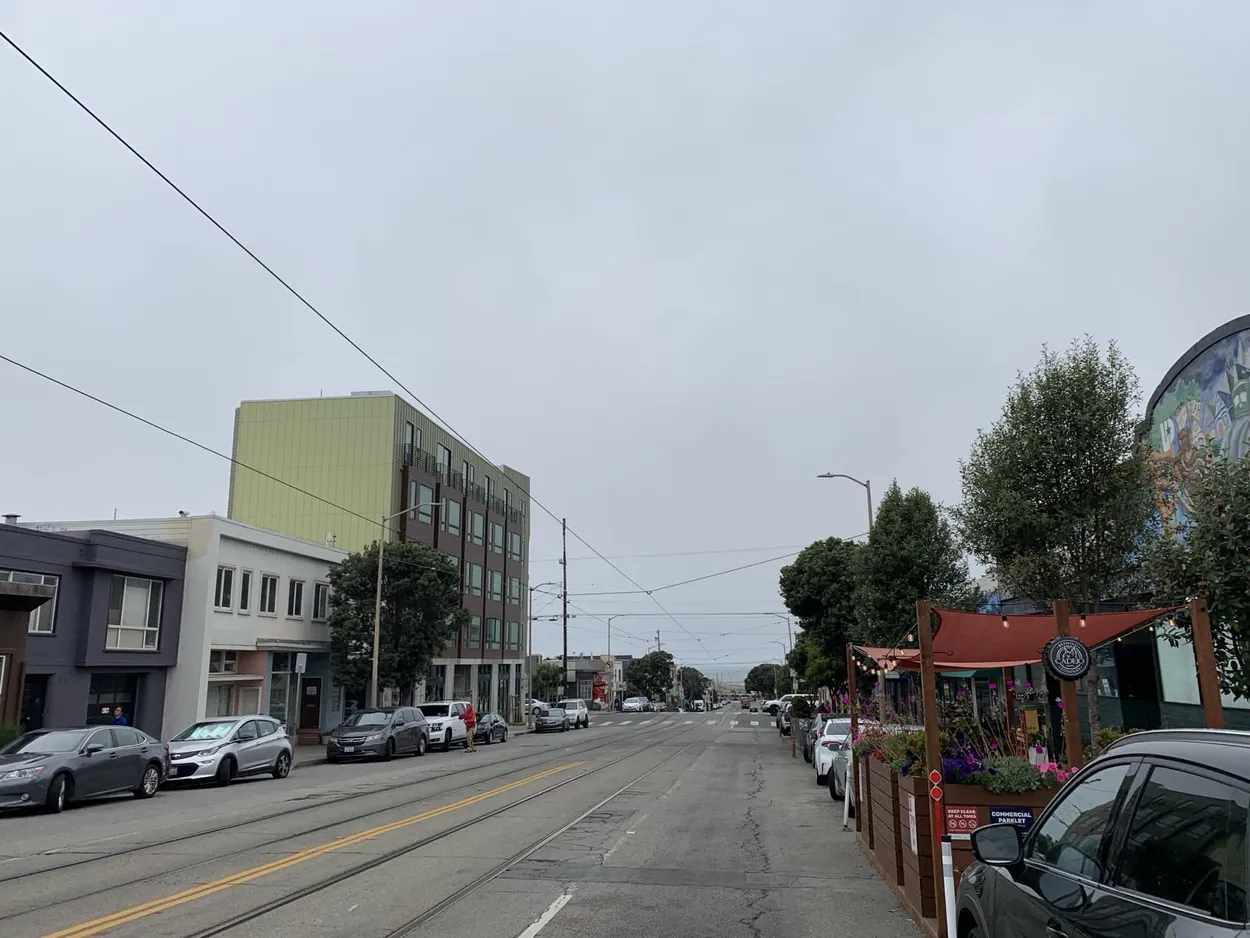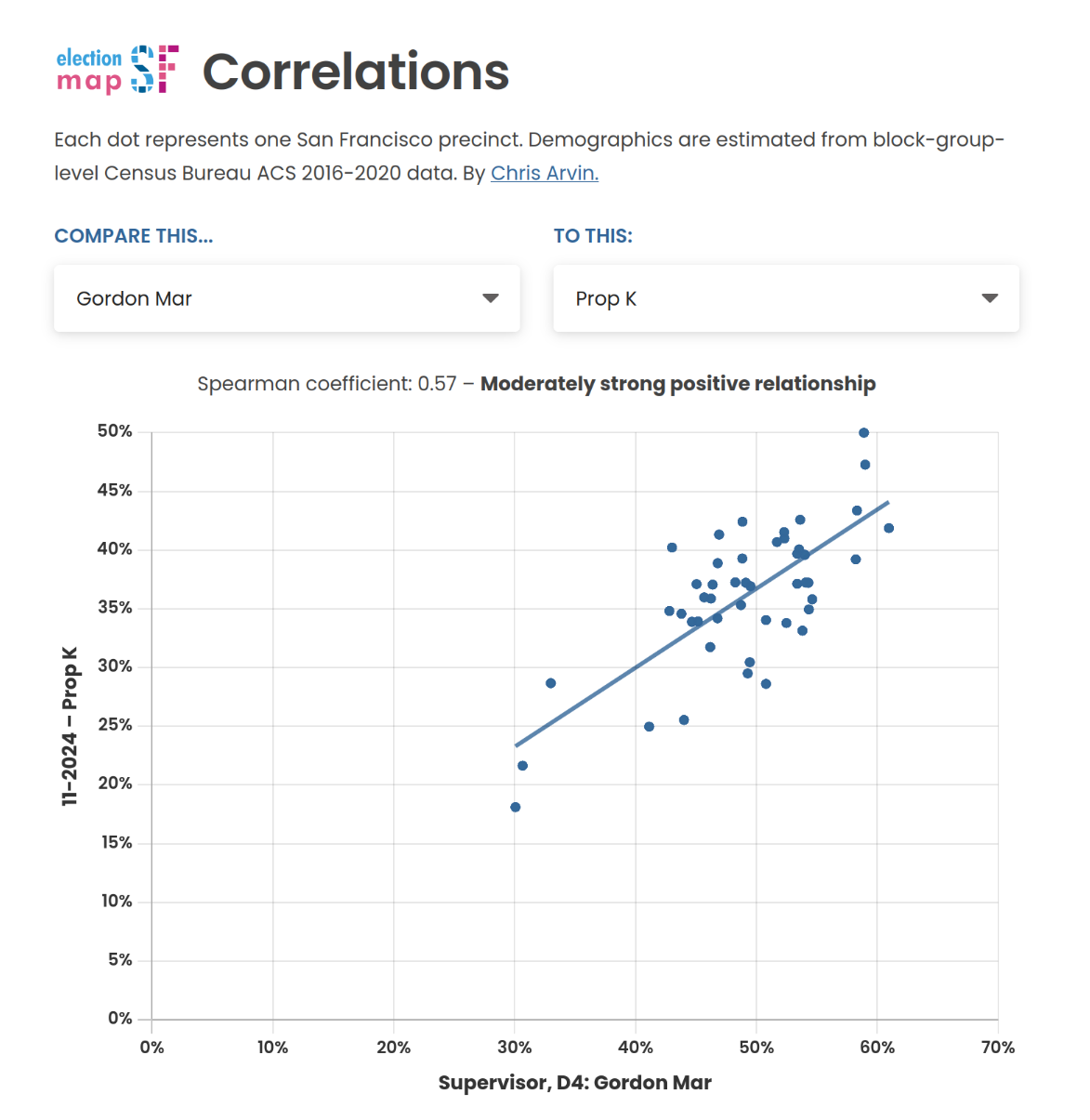Engardio recall shows SF's moderate-urbanist coalition is collapsing
September 23, 2025

It seems everyone in San Francisco is trying to figure out how last week’s recall of Supervisor Joel Engardio will change the city’s political landscape. Safe streets advocates have reason to be especially concerned. The core issue that motivated recallers most was the conversion of the Great Highway into Sunset Dunes Park, approved by 55% of voters in last year’s Proposition K, and backed by Engardio, but opposed by 64% of his district. If the recall scares other politicians, it may become harder to win transformative changes on our streets.
One lesson we should take away is the inherent instability of alliances between urbanists and conservatives.
Engardio’s principled support for converting a crumbling, obsolete highway into a park will long be remembered appreciatively by urbanists, but that isn’t his whole legacy. Before that, he built his brand as one of the most conservative voices in San Francisco politics, stoking racial tensions and fears of crime to recall a progressive DA and school board members. He pitched that record to District 4’s most conservative voters and called it the key factor in his narrow win over progressive incumbent Supervisor Gordon Mar in 2022.
However you might have felt about those previous recalls, emphasizing them above all else created an electoral base that was not exactly welcoming to transformative streets changes. Many of his loudest campaign supporters were people who wanted to “Open the Great Highway.”
Mar, for his part, was not a perfect ally of sustainable streets. In spring 2021, he called for Slow Streets to end as schools reopened, exactly when they were most needed for kids to walk and roll to school. Later that year, together with then-Mayor London Breed, he announced the return of cars to the Great Highway on weekdays.
But Mar had also played a key role in opening the highway to people as a recreational space in 2020 in the first place. And in a May 2022 SF Standard interview, he explicitly endorsed a full-time park as the highway’s future. He added lots of caveats about careful planning, but that was still farther than candidate Engardio was willing to go. By the standards of his car-heavy district, Mar had evolved into a pretty good ally.
Election results would later show a moderately strong positive correlation between support for Mar in 2022 and support for Prop. K in 2024.

Engardio’s post-election pivot to support a full-time park was commendable, and frankly surprising. Unfortunately, the Venn diagram of D4 residents who were furious about it, and those who’d powered his own campaign, was nearly a circle. Progressives, meanwhile, felt little loyalty to a supervisor whose conservative streak still showed in his votes for a cruel citywide RV ban and removing a reform-minded police oversight commissioner. Engardio’s base had dropped out, and he hadn’t broadened his appeal.
Worse, many of Engardio’s moderate allies across the city dropped him like a hot potato. His former colleagues at GrowSF, who’d endorsed him in 2022, didn’t bother creating a voter guide for the recall election. Despite endorsing K last year, they now tell Politico it was a divisive distraction all along. The moderate-controlled S.F. Democratic Party Central Committee took no position on the recall in a deadlock between urbanist moderates and “get off my lawn” moderates.
This should be a wakeup call to urbanists who thought backing the moderate SFDCCC slate would advance our issues.
There’s a better way. Instead of teaming up with moderate groups that want to keep conservative voters happy, safe streets advocates can build alliances with progressives and the left.
It makes for more natural alliances that work with, rather than against, real voters’ views. As with Prop. K and Gordon Mar, there were positive correlations between K support and votes for the more progressive major candidate in districts 7 (Myrna Melgar), 9 (Jackie Fielder), and 11 (Chyanne Chen). In no district was the opposite true. If Mar had won re-election and been the one to create Sunset Dunes, he might have been able to plan and message it in a way that felt less imposed by outsiders to D4 voters. His progressive and labor support base would’ve held firm in case of recall.
Look to New York City for an example of this kind of politics. Zohran Mamdani’s most headline-grabbing proposals may be about taxing the rich and standing up to Trump. But he’s also getting urbanists excited by highlighting the importance of truly protected bike lanes and racing a slow bus to promote transit priority.
Wouldn’t it be nice if we were having that conversation, instead of treading water on safety, unleashing Waymos on “car-free” streets, and recalling recallers?

Comments
With an account on the Fediverse or Mastodon, you can comment by replying to this post. You can use an account on any server, provided it is not blocked by my server for allowing spam or offensive content.